Here's what CES 2021 taught us this year
Rogue AIs, shiny laptops, wonky GPUs, and things that are inexplicably not sex toys.

The Consumer Electronics Show, now officially known as CES, is over. It's been an interesting show for a number of reasons, not least because it was the first all-digital version, and apparently made history as the largest digital tech industry event. Bit niche that, but it works.
Even in its physical Las Vegas form, CES has rarely been the most PC-centric of tech events, being more about the latest TV and refrigerator tech than anything you'd play PC games on.
But AMD has historically shown off its new APUs around CES, and Nvidia often has something to say, even if it's just about the more high-end Nvidia servers you buy from ol' Jen-Hsun, the more you will save...
This year's virtual CES saw laptop tech being the order of the day for PC gaming, but there are some other key points the PC Gamer hardware team has come away from the digital show with.
AI overlords

AI might dumb us down to increase our happiness
At the 'Technological Megashifts Impacting our World' talk, Prof. Amnon Shashua spoke in depth about the future of AI. He explained that, with more compute power, and more data "you can do things that years ago would be considered science-fiction".
He talked about how AI is mostly "narrow" at current. It translates, it recognises patterns, it mimics human behaviour, but it is focused on singular veins of knowledge, and exhibits mostly non-transferable skills.
With "broader" AI, however, comes new horizons, new spectrums of research and understanding, and of course new challenges. AI has a way of making questionable decisions and generalisations, after all. Shashua joked that if we program an AI to make those around it happier, it might decide the best course of action is to "dumb us down" for our own good.
Keep up to date with the most important stories and the best deals, as picked by the PC Gamer team.
Ignorance is bliss, and all that.
To move in the right direction, Shashua is convinced that language is the next big frontier in the field. And, while this sounds like my job may be under threat in the near future, I can't wait to have intellectual discussions with the AI in my living room.
If we can finally make the push toward AI's proper assimilation of language, context, temporal dimensions, etc. we'll be able to open up meaningful and insightful discussions with bots. Perhaps we'll finally see AI pass the high-school comprehension tests that none currently can, and maybe they'll stop being hateful jerks on Facebook.
And maybe it'll help us solve some of the world's most important existential questions, of life, the universe, and everything.
“O Deep Thought..."
Katie Wickens
Just not the same
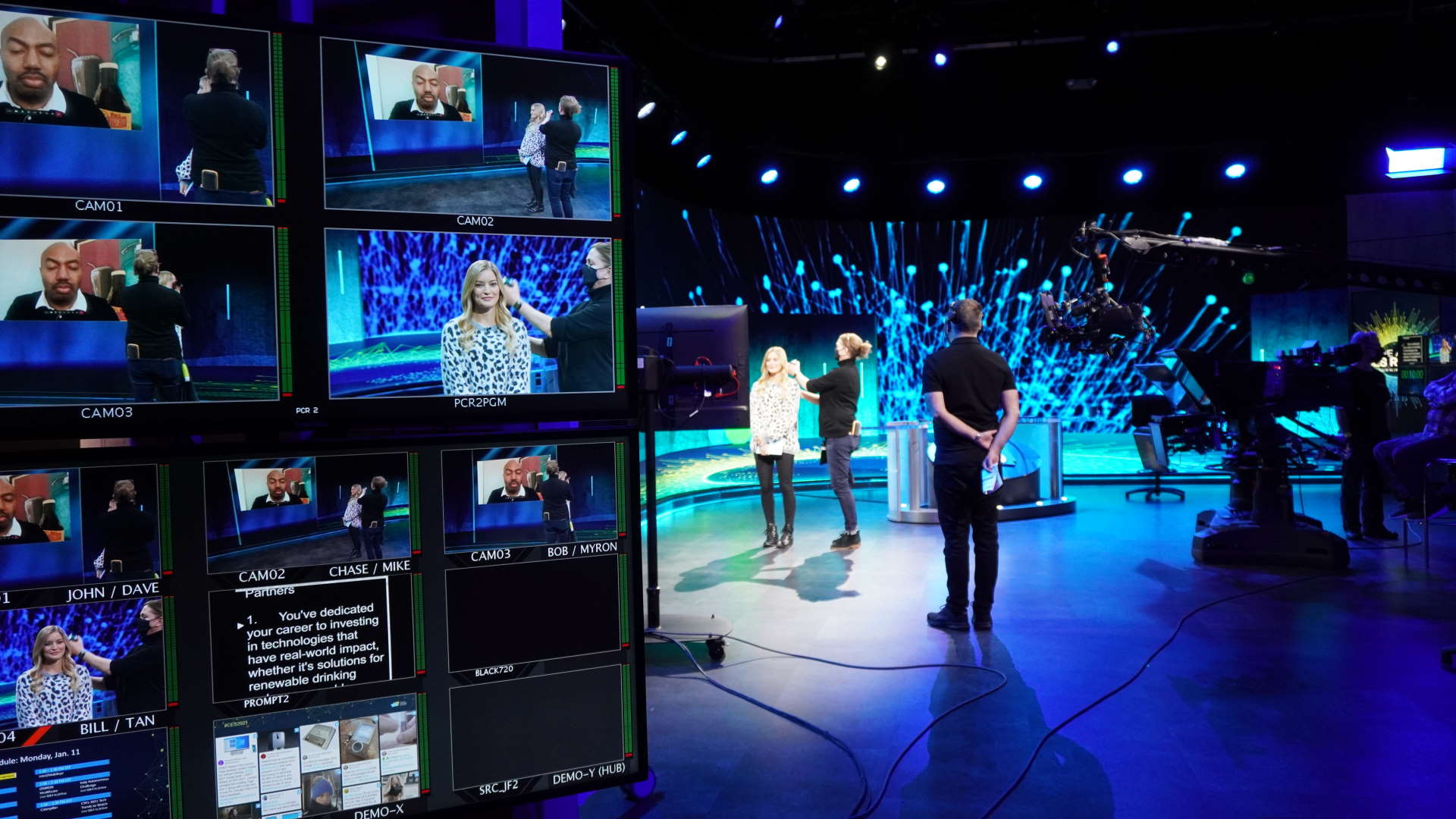
There's no replacing a physical show
However much I love a half-hour stream filled with the latest tech and some flashy b-roll, the general buzz about a show has been sorely missed this year. Traipsing from convention hall to hotel can be hella tiring, but damn if that's not the best way I know to find those small, wild products that you know you just have to write about immediately.
There are some important things to learn from this year's virtual show, however. While the big names out of CES do usually beam their shows out to the world, making an even more widely accessible show can only be a good thing. Virtual showrooms needn't be something born only out of necessity.
If CES 2022 (hopeful) or CES 2023 (more likely) can manage to bring the best of the virtual show and the in-person event together to create the Glastonbury of tech shows—or as close as a show often comprised of TVs and smart washing machines can get—then I think we'll be onto a winner.
Jacob Ridley
Still weird
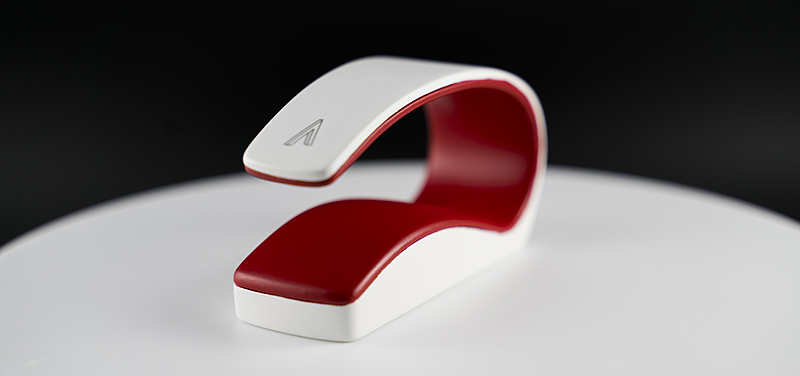
CES still is a really weird show
Despite being all digital this year, CES still keeps its inherent weirdness. Yeah, we aren't stumbling around hotel suites ripping keycaps off gold keyboards or having robot handing a bottled water near another who is dancing on the show floor but that doesn't mean our inboxes aren't of cool and wacky looks of the future.
From RGB N95 face respirators, smart bath tubs or even a digital safe specifically designed for weed, CES never disappoints. As far as gaming is concerned, CES really isn't the event for that, aside from predictable GPU announcements, gaming isn't really the spotlight of the show. CES is about giving a ridiculous look at our future and how it'll change the way we play games or even how we sit. And robots, of course.
Jorge Jimenez
Gaming laptop love
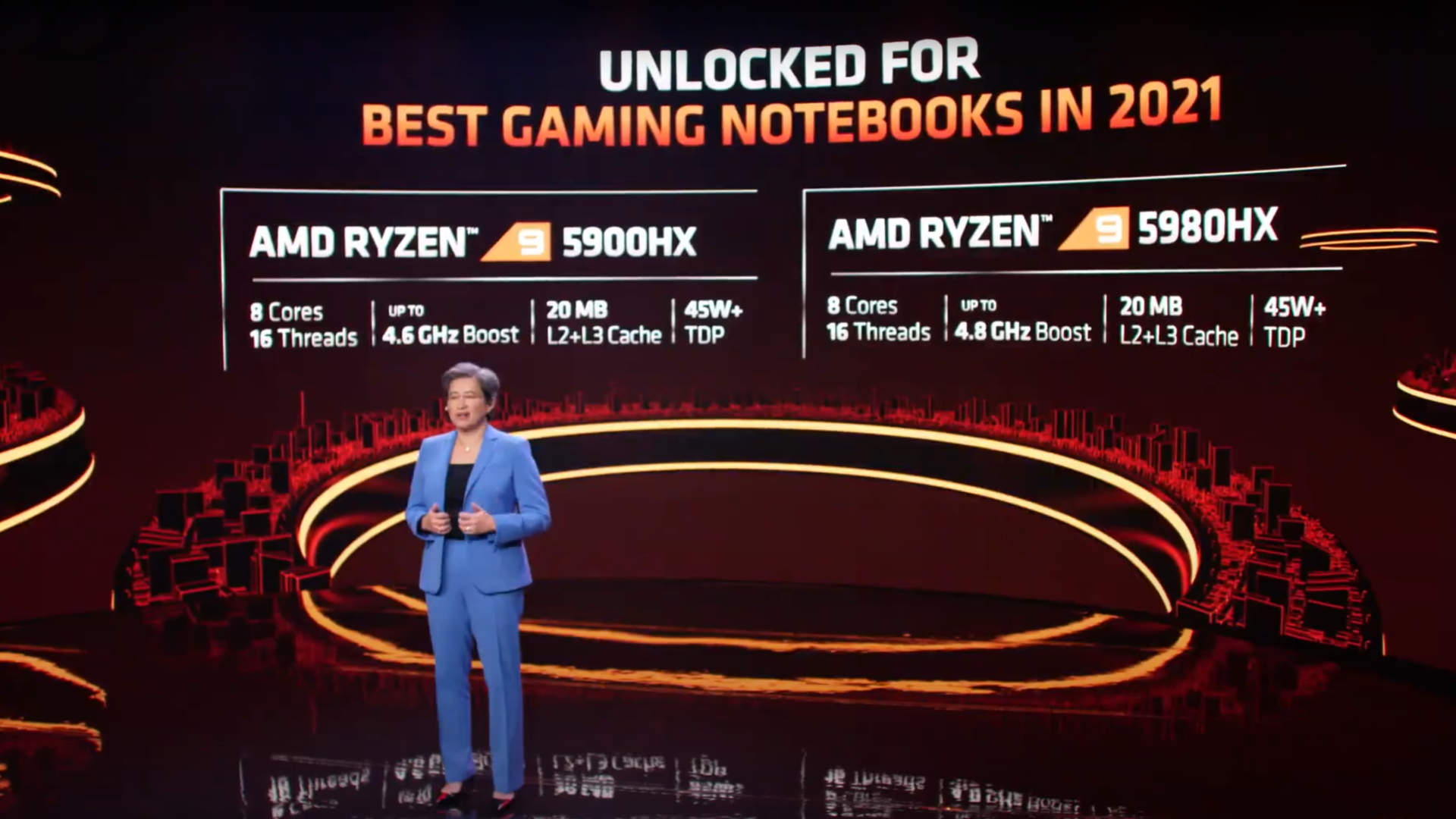
Laptops just got a whole lotta love
Jacob's spot on, CES being a virtual event means that a lot of what makes the tech showcase work so well falls a bit flat. Without being able to roam the halls unearthing the weird and wonderful, it just feels like a series of loosely connected press events. One thing did manage to permeate through though, and that was that gaming laptops just got a whole lot of love. In fact, apart from the 12GB GeForce RTX 3060 finally getting announced, everything seemed to be focused on mobile gaming.
AMD, Intel, and Nvidia all managed to squeeze out major laptop upgrades, which should form the core of plenty of powerful gaming laptops over the course of 2021. AMD's new Ryzen 5000 HX processors look particularly good, and I'm eager to get my hands on a laptop powered by a Ryzen 9 5900HX and an RTX 30-series mobile GPU.
It's good to see that laptop manufacturers are giving screens a lot of love as well, and the idea of this core paired with a high-refresh WQHD screen seems almost too good to be true. And while I have fears that the best specs will all be prohibitively expensive again, at least we have the promise of $999 RTX 3060 laptops to look forward to. Here's hoping this year's laptops live up to the CES dream.
Alan Dexter
Lazy laptops
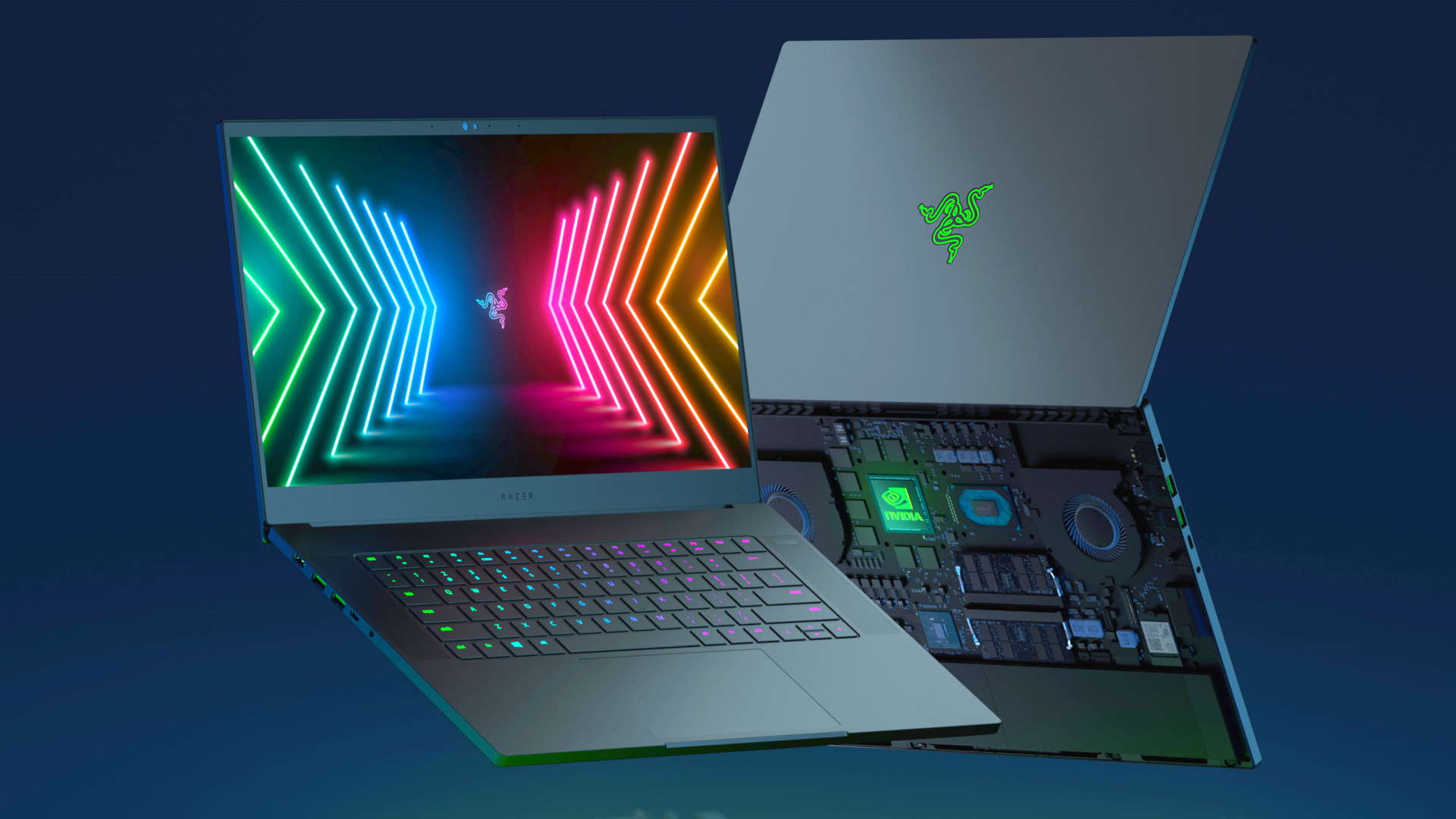
Gaming laptop makers are intrinsically lazy
AMD has unveiled the most powerful x86 CPU for thin and light laptops in the new Ryzen 5000 chips, and is even promising its Zen 3-powered HX gaming chips will smash whatever Intel can throw its way. Dr. Su has also promised us that, in the next six months, we'll have mobile versions of its RX 6000-series GPUs ready to roll out in new gaming laptops.
For its part Intel unveiled a slightly higher TDP version of its current Tiger Lake processors, designed for thin-and-light gaming laptops, and teased us with the proper H-series chips sporting eight cores and 16 threads, with clock speeds in excess of 5GHz.
Nvidia was perhaps the biggest gaming laptop noise-maker at CES this year, unveiling the new Ampere generation notebook GPUs, with RTX 3060, RTX 3070, and RTX 3080 graphics silicon ready to hit the very tops of our laps at the start of February. These will deliver unprecedented levels of gaming performance at every price point. And you might even be able to buy these versions.
But though there has been some spectacular mobile silicon unveiled—mentioning nothing of the stunning new 240Hz QHD notebook screens—the actual gaming laptops on show are no different at all. Razer even made a point about how it hadn't changed the Blade design one iota in three generations. Sure, it's a pretty aluminium chassis, but c'mon.
Because the new tech demands little more in terms of power and cooling, most manufacturers are simply rolling out their old chassis designs but with new innards and screens. At least until Intel releases Tiger Lake-H in May or June anyways, we might get redesigns then. Maybe.
Dave James
Wonky GPUs
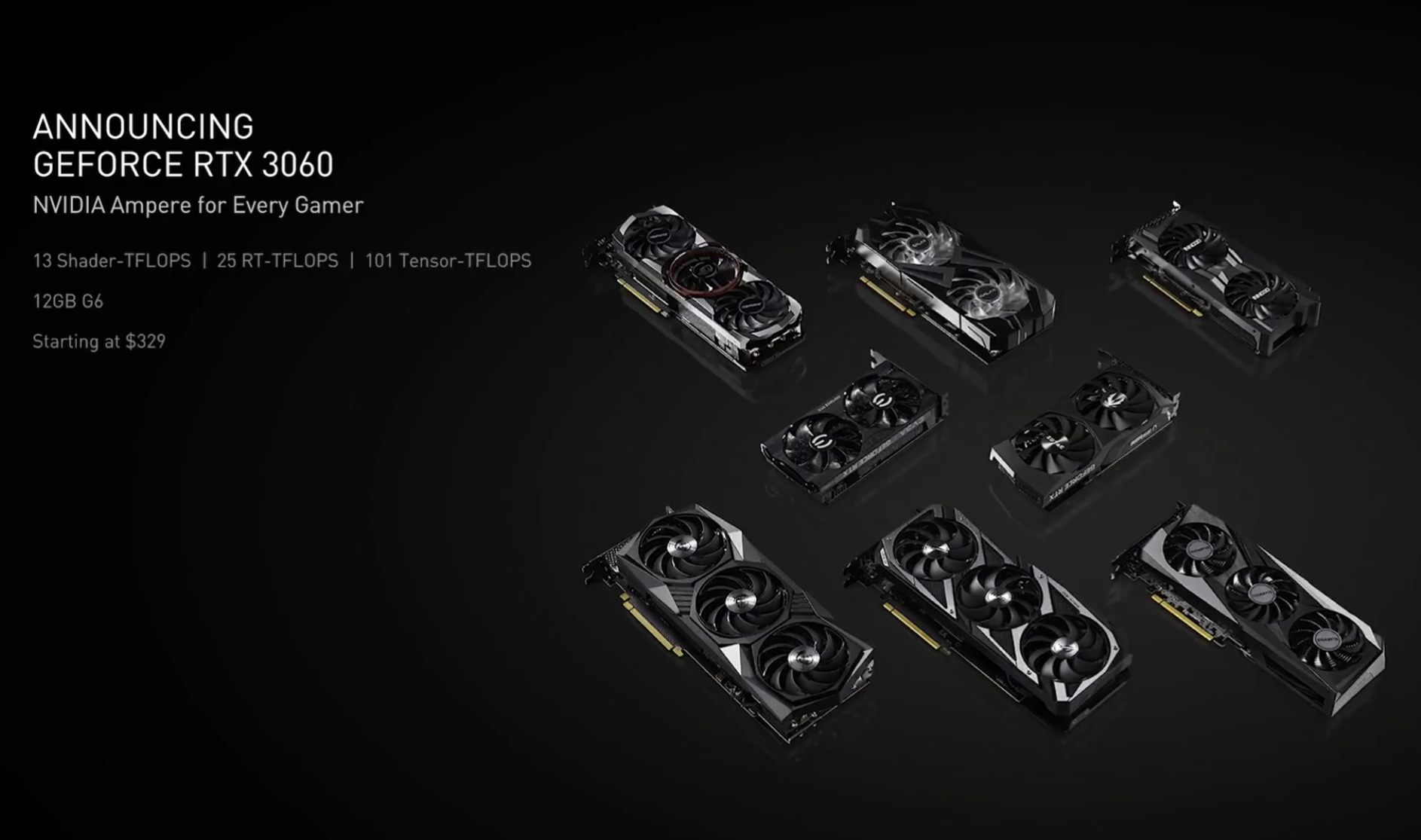
Nvidia’s desktop graphics line up is now looking a little wonky
The launch of the new GeForce RTX 3060 makes for probably the least impressive member yet of Nvidia’s mostly mega new Ampere family of RTX 30 Series GPUs. For starters, initial specs indicate it’s not as big a leap over its Turing predecessor as other members of the Ampere range. But it also has the effect of making the whole RTX 30 Series look a little wonky.
That’s because the RTX 3060 packs fully 12GB of video memory. That’s more graphics memory than every other Ampere GPU up to and including the 10GB $699 Nvidia RTX 3080. As you’ll almost certainly know, the RTX 3060Ti and RTX 3070 both sport 8GB of VRAM. If any member of the new RTX 30 series doesn’t need 12GB, it’s the plain old RTX 3060.
Meanwhile, cards like the RTX 3070 and RTX 3080 that could really use a bit more VRAM to compete with AMD’s new Radeon RX 6000 series 16GB boards. They have to make do with far less. The RTX 3060 has no real competitor over at AMD, at all, let alone one with far more VRAM.
It’s all very odd and surely can’t last. In fact, it probably wouldn’t be happening at all were it not for the fact that demand in the GPU market currently outstrips supply by such a huge degree, Nvidia could probably tart up an old GeForce 256 board with some LED lighting and flog it for $500. That’s how desperate people are for new graphics cards. Anyway, Nvidia will surely be revising the RTX 30 series fairly soon with increased VRAMs SKUs. Surely.
Jeremy Laird
Shortages linger on
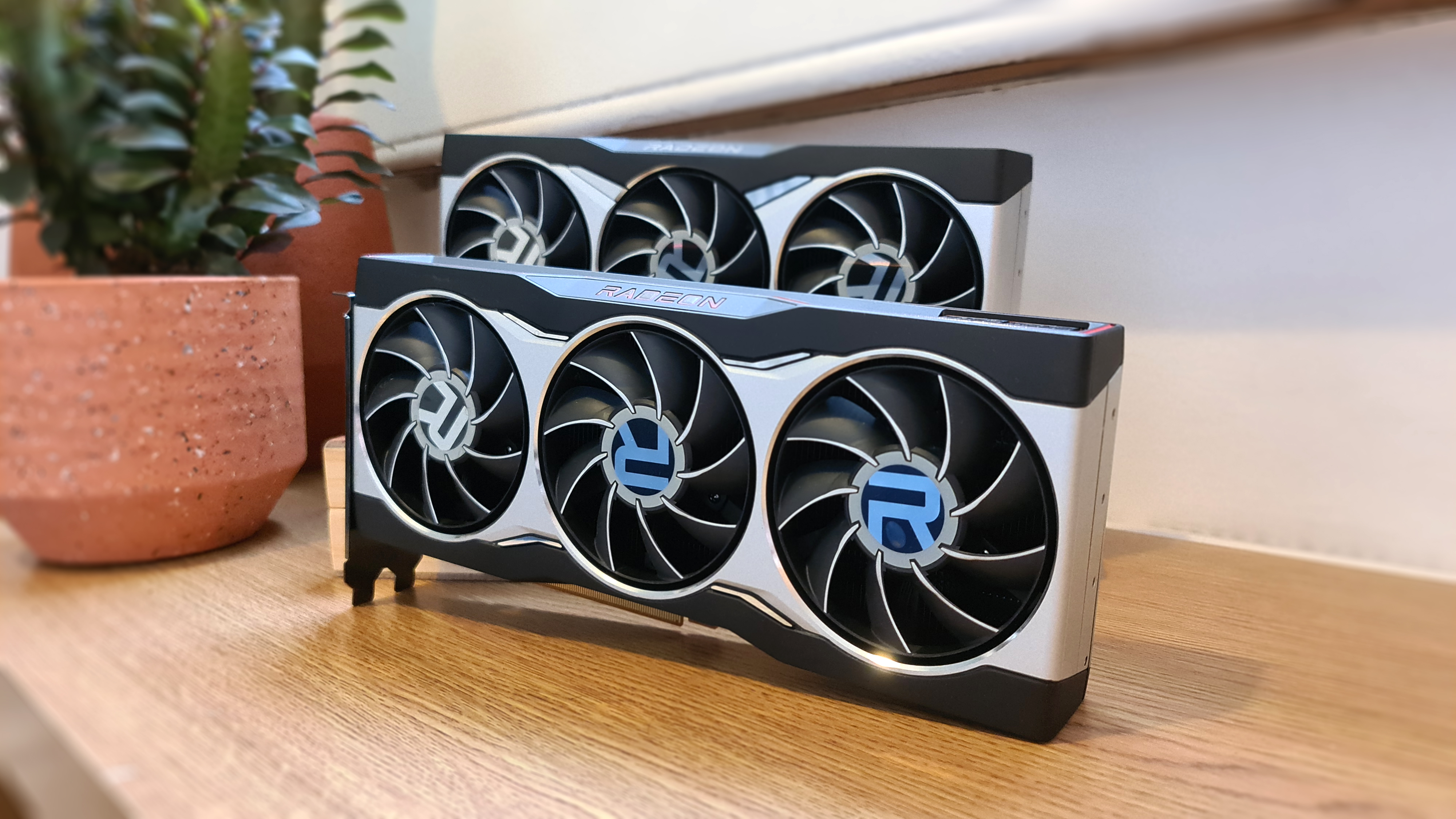
Hardware shortages will linger
New PC products are always fun to digest (not literally—please don't eat your CPU), but what's the point if you can't actually get your hands on them? I was really hoping AMD and Nvidia would announce they found a bunch of missing shipping containers filled to the brim with the latest CPUs and GPUs, so we could finally have a shot at competing with unscrupulous resellers and bots. Instead, it sounds like lean inventory levels will linger for at least a few more weeks, maybe months.
The good news is, it won't last forever (if I say that enough, I start to believe it). Just long enough for AMD to refrain from announcing more Ryzen 5000 series CPUs at CES, and where is the expanded ‘Ti’ lineup from Nvidia? A thousand leaks can't all be wrong,? We'll see.
We'll also have to wait and see if Intel's Rocket Lake CPUs launch in sufficient quantities to meet demand. I know, I know—it's another iteration of 14nm, but I'm looking forward to seeing if Rocket Lake can deliver the 19 IPC boost Intel is claiming. I've been considering building a new PC, and if AMD's Zen 3 chips are still in short supply when Intel Rocket Lake arrives, I may go that route instead. Just not with a $1,000 MSI motherboard.
Paul Lilly

Screw sports, Katie would rather watch Intel, AMD and Nvidia go at it. Having been obsessed with computers and graphics for three long decades, she took Game Art and Design up to Masters level at uni, and has been rambling about games, tech and science—rather sarcastically—for four years since. She can be found admiring technological advancements, scrambling for scintillating Raspberry Pi projects, preaching cybersecurity awareness, sighing over semiconductors, and gawping at the latest GPU upgrades. Right now she's waiting patiently for her chance to upload her consciousness into the cloud.

